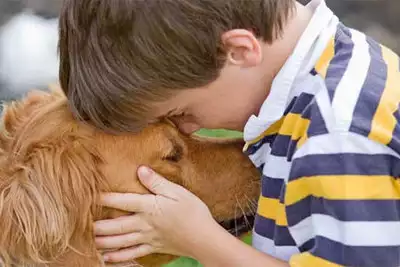The relationship between humans and animals is a complex and multifaceted phenomenon that has intrigued scientists, psychologists, and pet owners alike for centuries. From the loyal companionship of dogs to the independent grace of cats, pets have a unique ability to captivate our hearts and minds, forging deep bonds that transcend the boundaries of species. In this blog, we delve into the psychology of pet ownership, exploring the intricate dynamics of the human-animal bond and the profound impact it has on our mental, emotional, and physical well-being.
The Evolutionary Roots of the Human-Animal Bond
A Shared History
The bond between humans and animals has deep evolutionary roots, dating back thousands of years to our earliest ancestors. Throughout history, humans have relied on animals for companionship, protection, and assistance in hunting and agriculture. This symbiotic relationship has shaped our evolution and influenced the development of human societies and cultures.
The Social Brain Hypothesis
According to the social brain hypothesis, the ability to form social bonds and maintain complex social relationships played a crucial role in human evolution. Pets, with their capacity for communication, empathy, and social interaction, tap into this innate human need for connection and belonging. As social beings, we are drawn to the companionship and affection that pets provide, fulfilling our need for emotional support and social connection.
The Psychological Benefits of Pet Ownership
Emotional Support and Comfort
Pets have a remarkable ability to provide emotional support and comfort to their owners, especially during times of stress, anxiety, or loneliness. The unconditional love and non-judgmental acceptance offered by pets can help alleviate feelings of isolation and depression, providing a source of solace and companionship in challenging times.
Reduced Stress and Anxiety
Numerous studies have shown that interacting with pets can lead to a reduction in stress hormones such as cortisol and an increase in feel-good neurotransmitters like oxytocin and dopamine. The simple act of petting a dog or cat can trigger the release of these chemicals, promoting relaxation, and a sense of well-being.
Increased Socialization and Connection
Pets can also serve as catalysts for social interaction and connection with others. Whether it’s striking up conversations with fellow dog owners at the park or attending pet-related events and activities, pets provide opportunities for socialization and the formation of meaningful relationships. Pets serve as icebreakers, bridging gaps between people and fostering a sense of community.
Attachment Theory and the Human-Animal Bond
Secure Base Effect
Attachment theory, originally developed by psychologist John Bowlby, posits that humans are biologically predisposed to form strong emotional bonds with caregivers during infancy. This attachment bond provides a secure base from which individuals can explore the world and seek comfort and support when needed. Pets, with their unwavering loyalty and affection, can serve as attachment figures for their owners, providing a sense of security and reassurance in times of need.
The Role of Pets in Coping and Resilience
Research has shown that the presence of a pet can help individuals cope with stressful or traumatic experiences and build resilience in the face of adversity. Pets provide a source of comfort and support, offering unconditional love and companionship during difficult times. The bond between human and animal can serve as a buffer against the negative effects of stress and trauma, promoting emotional well-being and psychological resilience.
The Therapeutic Potential of Animals
Animal-Assisted Interventions
The therapeutic benefits of animals have led to the development of animal-assisted interventions (AAIs), which utilize the human-animal bond to promote health and well-being. From therapy dogs that provide comfort to patients in hospitals to equine-assisted therapy programs for individuals with mental health disorders, AAIs harness the healing power of animals to enhance physical, emotional, and psychological outcomes.
The Healing Power of Pets
The presence of a pet can have profound therapeutic effects on individuals with a wide range of conditions, including depression, anxiety, PTSD, and autism spectrum disorders. Pets provide a sense of companionship and security, reduce feelings of loneliness and isolation, and promote relaxation and emotional regulation. In therapeutic settings, animals serve as co-therapists, facilitating emotional expression, social interaction, and connection with others.
Conclusion: Nurturing the Human-Animal Bond
In conclusion, the human-animal bond is a powerful and enduring relationship that enriches our lives in countless ways. From providing emotional support and companionship to reducing stress and promoting well-being, pets play a vital role in our mental, emotional, and physical health.
As we continue to explore the psychology of pet ownership, it’s clear that the bond between humans and animals is a complex interplay of evolutionary, psychological, and social factors. Whether we’re cuddling with a cat, walking a dog, or simply enjoying the presence of a beloved pet, the human-animal bond is a source of comfort, joy, and unconditional love that transcends words and language.
In nurturing and cherishing this bond, we honor the profound connection between humans and animals and acknowledge the transformative power of companionship, empathy, and love. As we navigate life’s ups and downs, our pets remain steadfast companions, offering unwavering support and companionship through thick and thin. Together, we embark on a journey of mutual understanding, respect, and love, forging bonds that endure for a lifetime.






